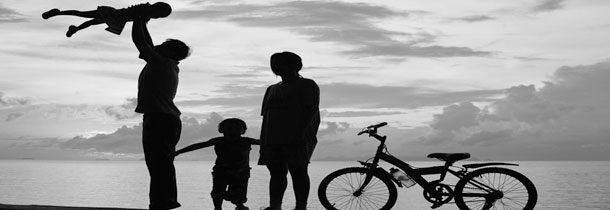
13 Jul From Bad To Glad, Teenagers
How Do We Help Our Teenagers Build Resilience In The Face Of Adversity?
Have you ever wondered why bad things happen?
Let me share an event that happened a week ago to my teenager, my 12 year old son.
Once a week after school my teenager, Oscar likes to head down to Fremantle with a few of his mates to enjoy some of the newly discovered freedoms of youth – namely – eating junk food and going to Esplanade Park to try out their parkour moves (-an urban sport involving jumping from one urban structure to another – kind of like Neo in the Matrix – albeit a much tamer version!). On this day, Oscar and 2 of his mates decided to indulge their taste buds at HJ’s with a soft serve ice cream and a frozen coke. As they approached Hungry Jacks, one of Oscar’s friends decided, out of the blue, that he wanted to go home, and suggested that Oscar should accompany him for the bus ride. Oscar stated that as they had just arrived in Freo, he had no intention of leaving and encouraged his friend to stay. His friend insisted that he wanted to go home and as such Oscar gave him directions on which bus to catch and where from. His friend became argumentative and attracted the attention of a large group of youths, who taunted the two boys by yelling “fight, fight”. One of the youths demanded money from Oscar. Oscar dutifully gave over his remaining 50 cents – enough for a soft serve cone, while the youngest member of the pack (about 7 years of age) started pushing and punching Oscar’s other friend who was defenceless to retaliate as the boy’s much older brother and sister were direct onlookers and were egging their brother on. The jeering pack circled the boys and blocked the entrance of HJ’s. Trapped and terrified the boys saw no way of escape. Timing can be golden and a moment later, to their great relief an older man approached the scene who appeared to know the pack of youths. He waved them off and told them to leave the boys alone.
At dinner that night Oscar was unusually disobedient, refusing to follow the request to come to the table to eat with the family. His dad told him off and to our surprise he burst into tears and went to his bedroom. I sat on the edge of his bed and hugged him while he sobbed and then I probed as to the cause of his tears. Oscar insisted that he couldn’t tell me the reason – it turned out that his friend had told him not to share any of the incident with us in case it resulted in being banned from going to Fremantle in the future. After much coaxing and reminding Oscar that being honest allowed him to get it off his chest rather than carrying around a heavy burden of worry and angst, Oscar confessed the whole afternoon’s events. I sat and listened for a good half hour as Oscar described the event, his feelings of powerless to help his friend as he watched him being punched, his own terror and confusion, and his feelings of anger towards his friend who attracted the pack’s attention in the first place by yelling at Oscar for no good reason. It’s no surprise that as Oscar talked I noticed him shift – from a despairing, huddled boy on his bed, to a young teenager, who sat up in bed, looking me in the eye and having a voice. And then after he had let go of his emotional turmoil, the opportunity came to teach and learn. I asked Oscar what he would have done next time? What things could he have done to avoid or defuse the situation? What places did he consider were safe and unsafe in Fremantle and where would he go to get help? What strategies de-escalate a heated situation? This questioning allowed Oscar to problem solve and learn protective factors for the future. Oscar was able to see that in every situation he has the freedom to choose his response – by first stopping and asking himself “What is the best way to respond in this situation” – given my values, what I know, and what is going on around me in terms of picking up on other people’s behaviour by observing them and using my own instinct, and by being aware of the physical environment.
Oscar and I together phoned his friends and spoke to them and to one of the parents about the incident. This provided the opportunity for them to debrief, and together share ways in which they might avoid a confrontation next time. Oscar found the conversations invaluable in defusing the situation and in building stronger connection with his mates.
As I reflected on the incident – it again became evident that it is not through the calm but through the storms of life that character is tested, problem solving skills are harnessed, lessons are learnt and resilience is built.

